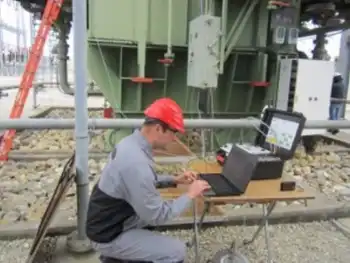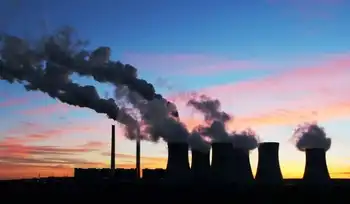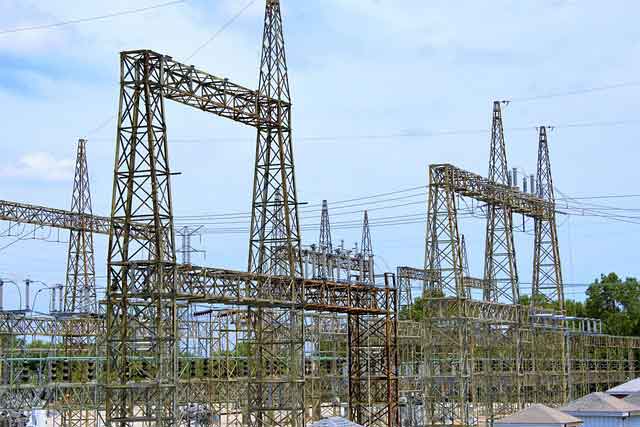New Tech Needed to Control Climate Change
Admittedly, researchers do not know exactly how sensitive the Earth's climate is to carbon, said Atul Jain, professor of atmospheric sciences at the University of Illinois. Nevertheless, the data indicate the planet's mean temperature will increase by 1.5 to 4.5 degrees Celsius if the amount of carbon emissions doubles, he said. "Some scientists tell us to reduce the uncertainty before taking action," Jain said. "But my paper says no matter what the uncertainty is, we have to take action now." Using the 1.5-degree Celsius sensitivity, Jain estimates more than 75 percent of the United States' primary power will have to come from sources that do not emit carbon dioxide to restrain global warming to about 2 degrees Celsius over the next 150 years. As reported in the March 28 issue of the journal Science, when researchers plugged in the high estimate of sensitivity, they found almost all energy will have to come from technologies that do not release carbon dioxide. "We have to have other means of energy," he added. "At this time there are a number of alternatives such as solar power, but we need new technology." "This helps us put into context what the electricity sector needs to do," said Katherine Silverthorne, director of the climate change program at the World Wildlife Fund in Washington. "It's time for electric companies to make a switch and embrace clean and renewable energy." The electric sector is responsible for about 40 percent of U.S. carbon dioxide emissions, she said. According to Department of Energy figures, this type of emission accounts for 84 percent of greenhouse gases, contributors to global warming. "Overall it's not really new," said Ben Preston, senior research fellow at the Pew Center on Global Climate Change in Arlington, Va. "The interesting thing is that the authors have couched this in terms of how much emissions the energy infrastructure has to cut." What people need to remember, however, is non-fossil fuel emissions do not mean emissions from renewables only, Preston said. "This could include carbon sequestration or increasing fuel efficiency," he explained. "It doesn't necessarily mean abandoning energy as we know it. There's some flexibility there." It is possible to reduce carbon emissions by 75 to 100 percent, Preston commented, but such a goal will require a proactive attitude. He said investment in technology research and development must be considerable and must include mandatory caps on greenhouse gas emissions.
"Some scientists tell us to reduce the uncertainty before taking action," Jain said. "But my paper says no matter what the uncertainty is, we have to take action now."
Using the 1.5-degree Celsius sensitivity, Jain estimates more than 75 percent of the United States' primary power will have to come from sources that do not emit carbon dioxide to restrain global warming to about 2 degrees Celsius over the next 150 years.
As reported in the March 28 issue of the journal Science, when researchers plugged in the high estimate of sensitivity, they found almost all energy will have to come from technologies that do not release carbon dioxide.
"We have to have other means of energy," he added. "At this time there are a number of alternatives such as solar power, but we need new technology."
"This helps us put into context what the electricity sector needs to do," said Katherine Silverthorne, director of the climate change program at the World Wildlife Fund in Washington. "It's time for electric companies to make a switch and embrace clean and renewable energy."
The electric sector is responsible for about 40 percent of U.S. carbon dioxide emissions, she said. According to Department of Energy figures, this type of emission accounts for 84 percent of greenhouse gases, contributors to global warming.
"Overall it's not really new," said Ben Preston, senior research fellow at the Pew Center on Global Climate Change in Arlington, Va. "The interesting thing is that the authors have couched this in terms of how much emissions the energy infrastructure has to cut."
What people need to remember, however, is non-fossil fuel emissions do not mean emissions from renewables only, Preston said.
"This could include carbon sequestration or increasing fuel efficiency," he explained. "It doesn't necessarily mean abandoning energy as we know it. There's some flexibility there."
It is possible to reduce carbon emissions by 75 to 100 percent, Preston commented, but such a goal will require a proactive attitude.
He said investment in technology research and development must be considerable and must include mandatory caps on greenhouse gas emissions.
Related News

Substation Maintenance Training
GENEVA, NY - Our Substation Maintenance Training course is a 12-Hour Live online instruction-led course that will cover the maintenance and testing requirements for common substation facilities.
Electrical Transformer Maintenance Training
Substation Maintenance Training
Request a Free Training Quotation
Electrical Substation maintenance is a key component of any substation owner's electrical maintenance program. It has been well documented that failures in key procedures such as racking mechanisms, meters, relays and busses are among the most common source of unplanned outages. Electrical transmission,…





